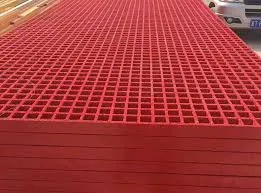
-
 Afrikaans
Afrikaans -
 Albanian
Albanian -
 Amharic
Amharic -
 Arabic
Arabic -
 Armenian
Armenian -
 Azerbaijani
Azerbaijani -
 Basque
Basque -
 Belarusian
Belarusian -
 Bengali
Bengali -
 Bosnian
Bosnian -
 Bulgarian
Bulgarian -
 Catalan
Catalan -
 Cebuano
Cebuano -
 China
China -
 China (Taiwan)
China (Taiwan) -
 Corsican
Corsican -
 Croatian
Croatian -
 Czech
Czech -
 Danish
Danish -
 Dutch
Dutch -
 English
English -
 Esperanto
Esperanto -
 Estonian
Estonian -
 Finnish
Finnish -
 French
French -
 Frisian
Frisian -
 Galician
Galician -
 Georgian
Georgian -
 German
German -
 Greek
Greek -
 Gujarati
Gujarati -
 Haitian Creole
Haitian Creole -
 hausa
hausa -
 hawaiian
hawaiian -
 Hebrew
Hebrew -
 Hindi
Hindi -
 Miao
Miao -
 Hungarian
Hungarian -
 Icelandic
Icelandic -
 igbo
igbo -
 Indonesian
Indonesian -
 irish
irish -
 Italian
Italian -
 Japanese
Japanese -
 Javanese
Javanese -
 Kannada
Kannada -
 kazakh
kazakh -
 Khmer
Khmer -
 Rwandese
Rwandese -
 Korean
Korean -
 Kurdish
Kurdish -
 Kyrgyz
Kyrgyz -
 Lao
Lao -
 Latin
Latin -
 Latvian
Latvian -
 Lithuanian
Lithuanian -
 Luxembourgish
Luxembourgish -
 Macedonian
Macedonian -
 Malgashi
Malgashi -
 Malay
Malay -
 Malayalam
Malayalam -
 Maltese
Maltese -
 Maori
Maori -
 Marathi
Marathi -
 Mongolian
Mongolian -
 Myanmar
Myanmar -
 Nepali
Nepali -
 Norwegian
Norwegian -
 Norwegian
Norwegian -
 Occitan
Occitan -
 Pashto
Pashto -
 Persian
Persian -
 Polish
Polish -
 Portuguese
Portuguese -
 Punjabi
Punjabi -
 Romanian
Romanian -
 Russian
Russian -
 Samoan
Samoan -
 Scottish Gaelic
Scottish Gaelic -
 Serbian
Serbian -
 Sesotho
Sesotho -
 Shona
Shona -
 Sindhi
Sindhi -
 Sinhala
Sinhala -
 Slovak
Slovak -
 Slovenian
Slovenian -
 Somali
Somali -
 Spanish
Spanish -
 Sundanese
Sundanese -
 Swahili
Swahili -
 Swedish
Swedish -
 Tagalog
Tagalog -
 Tajik
Tajik -
 Tamil
Tamil -
 Tatar
Tatar -
 Telugu
Telugu -
 Thai
Thai -
 Turkish
Turkish -
 Turkmen
Turkmen -
 Ukrainian
Ukrainian -
 Urdu
Urdu -
 Uighur
Uighur -
 Uzbek
Uzbek -
 Vietnamese
Vietnamese -
 Welsh
Welsh -
 Bantu
Bantu -
 Yiddish
Yiddish -
 Yoruba
Yoruba -
 Zulu
Zulu
Protective Solutions for FRP Trough Covers in Industrial Settings
FRP Trough Cover Protective Solutions for Industrial Applications
In modern industrial environments, the protection of essential infrastructure from various forms of damage is critical to ensuring operational efficiency and safety. One of the emerging solutions to address this need is the use of Fiber Reinforced Plastic (FRP) trough covers. These innovative covers offer robust protective solutions, catering to a myriad of industrial applications.
FRP, composed of a polymer matrix reinforced with fibers, typically glass or carbon, has gained popularity due to its remarkable strength-to-weight ratio, resistance to corrosion, and low maintenance needs. In situations where industries handle chemicals, wastewater, or other corrosive materials, FRP trough covers provide a durable barrier that safeguards both the contents and the surrounding environment.
Benefits of FRP Trough Covers
1. Corrosion Resistance One of the standout features of FRP trough covers is their excellent resistance to a wide range of chemicals and environmental factors. Unlike traditional materials such as metals, which can oxidize and deteriorate over time, FRP remains stable and functional, significantly reducing the potential for leaks and spills that could pose environmental hazards.
2. Durability and Longevity The durability of FRP is unmatched. Its resistance to impact, UV rays, and extreme temperatures ensures that FRP trough covers maintain their integrity over extended periods. Industries can trust that these covers will withstand harsh conditions, thereby minimizing downtime and reducing repair and replacement costs.
3. Lightweight Construction The lightweight nature of FRP makes installation and handling more manageable. Unlike heavier materials, FRP trough covers can be easily maneuvered, reducing labor costs and expediting the installation process. This feature also enhances safety during transportation and installation.
4. Customizability Industrial applications vary greatly, and FRP trough covers can be customized to fit specific requirements. Whether it's unique shapes, sizes, or load-bearing capacities, manufacturers can create FRP solutions tailored to meet the exact needs of any operation. This flexibility is instrumental in optimizing performance in diverse industrial settings.
frp trough cover protective solutions for industrial applications

5. Low Maintenance Requirements Once installed, FRP trough covers require minimal upkeep. Their resistance to corrosion and degradation means that routine maintenance costs can be significantly lower than those associated with traditional materials. This factor allows industries to allocate resources more efficiently.
Applications in Various Industries
FRP trough covers find utility across a wide range of industries. In wastewater treatment plants, they effectively cover troughs that collect and transport sewage and effluent, preventing contamination and employee exposure to hazardous materials. The chemical processing sector benefits from FRP covers that protect against spills and leaks, which could otherwise lead to costly environmental cleanup procedures.
Additionally, in the food processing industry, hygiene is paramount. FRP’s non-porous surface and easy-to-clean design make it an ideal choice for trough covers that need to meet strict sanitation standards.
Conclusion
As industries continue to seek reliable and efficient protective solutions, FRP trough covers emerge as a versatile alternative to traditional materials. Their unique properties, including corrosion resistance, durability, and low maintenance, make them an excellent investment for industrial applications. The ability to customize these covers ensures that they meet the diverse needs of various sectors, from wastewater treatment to food processing.
In an era where sustainability and operational efficiency are paramount, adopting FRP trough covers can lead to substantial long-term benefits, reducing environmental impact while enhancing workplace safety. Industries that embrace this innovative solution are likely to experience improved productivity and lower lifecycle costs associated with infrastructure maintenance. As technology advances, FRP solutions will undoubtedly carve a significant niche in the market for industrial protective solutions.









